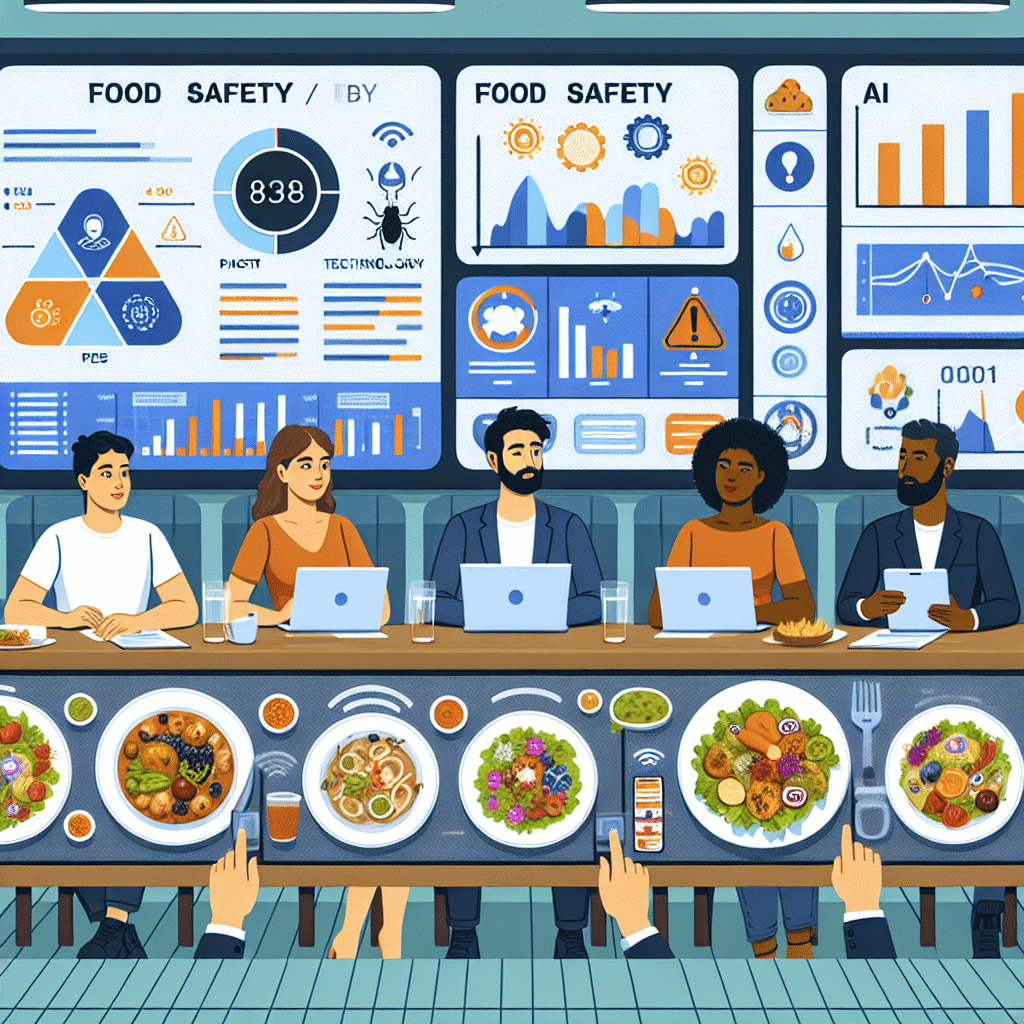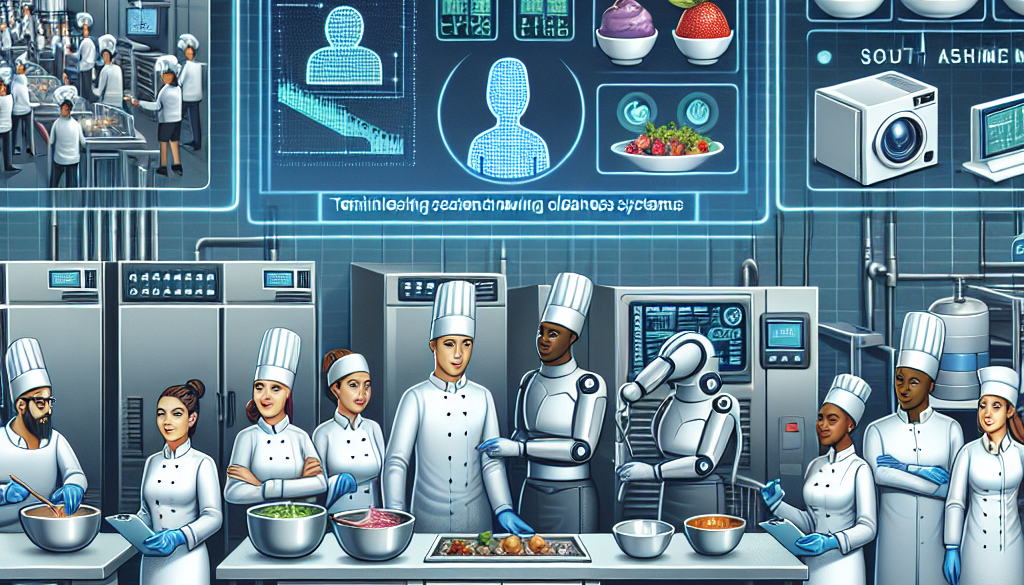How Does Technology Influence a Company’s Food Safety Culture?
-
Table of Contents
- Technology’s Impact on Enhancing Food Safety Culture in Companies
- The Role of Technology in Food Safety Management
- Enhancing Food Safety Culture Through Technology
- Statistics Supporting Technology’s Role in Food Safety
- Case Studies: Successful Implementation of Technology in Food Safety
- Challenges and Considerations
- Conclusion: Embracing Technology for a Safer Food Future
- ETprotein’s Commitment to Food Safety and Quality
Technology’s Impact on Enhancing Food Safety Culture in Companies

Food safety is a critical concern for companies in the food industry. With the rise of technology, the way these companies approach food safety has transformed significantly. Technology influences a company’s food safety culture by providing innovative solutions to monitor, manage, and improve food safety standards. This article explores the various ways in which technology is shaping food safety culture within companies and the benefits it brings to the industry.
The Role of Technology in Food Safety Management
Technology has become an integral part of food safety management systems. It offers tools for better traceability, real-time monitoring, and data analysis, which are essential for maintaining high food safety standards. Here are some key technological advancements that are influencing food safety culture:
- Traceability Software: Advanced software systems enable companies to track the journey of food products from farm to fork. This helps in quickly identifying and addressing any potential food safety issues.
- Sensors and IoT: Internet of Things (IoT) sensors can monitor temperature, humidity, and other environmental factors that affect food safety, ensuring that conditions remain within safe parameters.
- Data Analytics: Big data analytics allows companies to analyze vast amounts of information to predict and prevent food safety breaches before they occur.
- Blockchain: Blockchain technology provides a secure and transparent way to record transactions and can be used to ensure the integrity of food safety records.
Enhancing Food Safety Culture Through Technology
Technology not only provides tools for better food safety management but also plays a crucial role in fostering a culture of food safety within organizations. Here’s how:
- Employee Training: E-learning platforms and virtual reality (VR) simulations offer interactive and engaging ways to train employees on food safety protocols.
- Communication: Technology facilitates better communication between different departments and stakeholders, ensuring that everyone is aligned on food safety practices.
- Compliance: Automated systems help companies stay compliant with food safety regulations by providing reminders and updates on regulatory changes.
- Continuous Improvement: Technology enables companies to continuously improve their food safety processes through feedback loops and performance metrics.
Statistics Supporting Technology’s Role in Food Safety
Recent statistics highlight the growing importance of technology in food safety:
- A study by the Food Safety Tech found that 44% of food and beverage companies are planning to increase their investment in food safety technology.
- According to a report by MarketsandMarkets, the global food traceability market is projected to reach $22.27 billion by 2025, indicating a significant investment in traceability technologies.
- The adoption of IoT in agriculture is expected to increase at a compound annual growth rate (CAGR) of 10.4% from 2020 to 2025, as reported by Meticulous Research.
Case Studies: Successful Implementation of Technology in Food Safety
Several companies have successfully integrated technology into their food safety culture with impressive results:
- A leading global retailer implemented blockchain technology to enhance traceability and reduce the time taken to track food products from six days to just a few seconds.
- A major food processing company used IoT sensors to monitor storage conditions, resulting in a 30% reduction in product spoilage.
Challenges and Considerations
While technology offers numerous benefits for food safety, companies must also consider potential challenges:
- Cost: The initial investment in technology can be high, which may be a barrier for smaller companies.
- Data Security: With the increased use of digital systems, companies must ensure robust cybersecurity measures to protect sensitive data.
- Training: Employees need to be adequately trained to use new technologies effectively.
Conclusion: Embracing Technology for a Safer Food Future
Technology has a profound impact on a company’s food safety culture. By leveraging technological advancements, companies can enhance traceability, improve monitoring and compliance, and foster a culture of continuous improvement. While there are challenges to overcome, the benefits of integrating technology into food safety practices are clear. Companies that invest in these technologies are better equipped to ensure the safety of their products and the well-being of their consumers.
ETprotein’s Commitment to Food Safety and Quality
ETprotein is dedicated to providing high-quality protein products that meet the stringent standards of food safety. Their range of organic bulk vegan proteins and L-(+)-Ergothioneine (EGT) products are produced with the utmost care and attention to safety and quality. By choosing ETprotein, companies can be confident in the safety and integrity of their food products.
About ETprotein:
ETprotein, a reputable protein and L-(+)-Ergothioneine (EGT) Chinese factory manufacturer and supplier, is renowned for producing, stocking, exporting, and delivering the highest quality organic bulk vegan proteins and L-(+)-Ergothioneine. They include Organic rice protein, clear rice protein, pea protein, clear pea protein, watermelon seed protein, pumpkin seed protein, sunflower seed protein, mung bean protein, peanut protein, and L-(+)-Ergothioneine EGT Pharmaceutical grade, L-(+)-Ergothioneine EGT food grade, L-(+)-Ergothioneine EGT cosmetic grade, L-(+)-Ergothioneine EGT reference grade and L-(+)-Ergothioneine EGT standard. Their offerings, characterized by a neutral taste, non-GMO, allergen-free attributes, with L-(+)-Ergothioneine purity over 98%, 99%, cater to a diverse range of industries. They serve nutraceutical, pharmaceutical, cosmeceutical, veterinary, as well as food and beverage finished product distributors, traders, and manufacturers across Europe, USA, Canada, Australia, Thailand, Japan, Korea, Brazil, and Chile, among others.
ETprotein specialization includes exporting and delivering tailor-made protein powder and finished nutritional supplements. Their extensive product range covers sectors like Food and Beverage, Sports Nutrition, Weight Management, Dietary Supplements, Health and Wellness Products, and Infant Formula, ensuring comprehensive solutions to meet all your protein needs.
As a trusted company by leading global food and beverage brands and Fortune 500 companies, ETprotein reinforces China’s reputation in the global arena. For more information or to sample their products, please contact them and email sales(at)ETprotein.com today.












